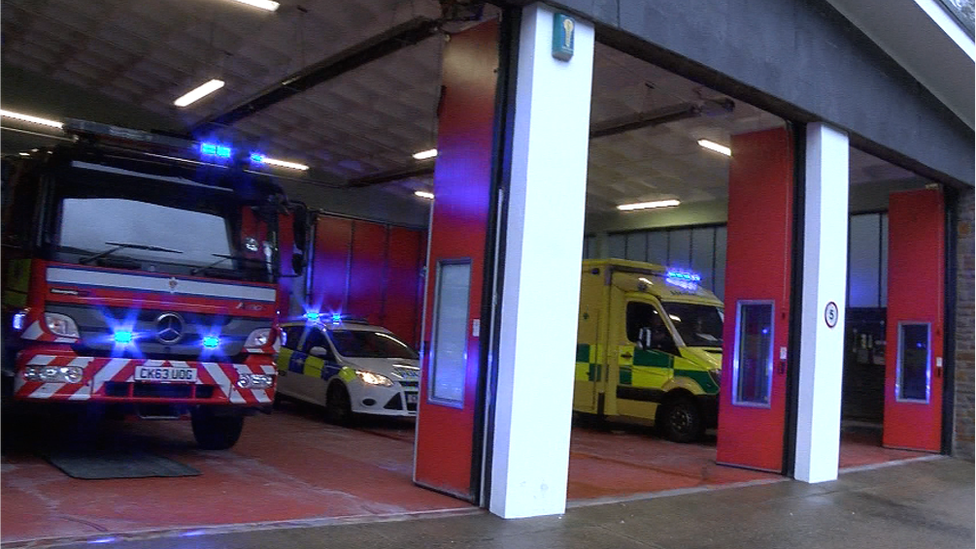Fire service merger in Wales would save money, council leader claims
- Published
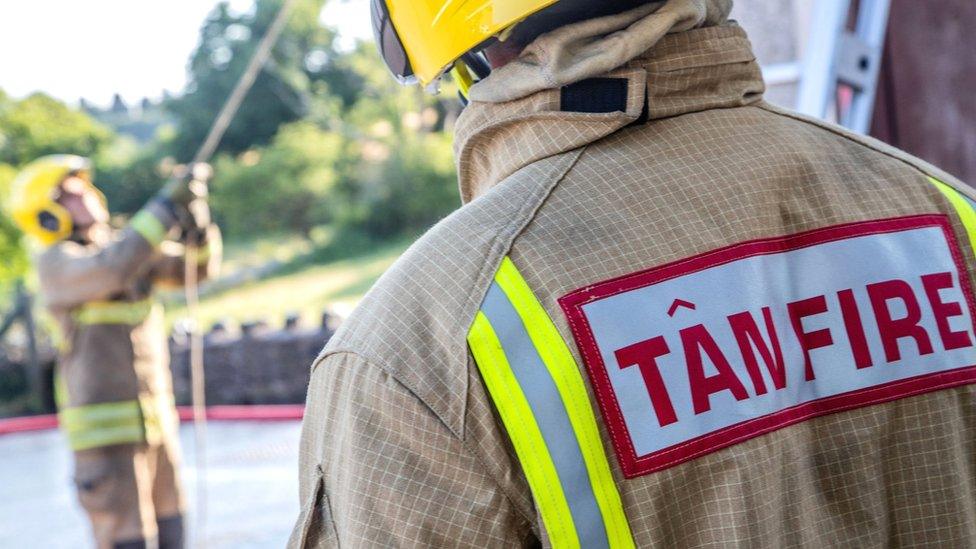
Merging Welsh fire services could make significant savings, John Thomas says
A single fire and rescue service should be launched to serve the whole of Wales, a council leader has said.
Currently there are three fire and rescue authorities, which are made up of nominated local councillors.
Welsh ministers say having fewer members - who should all hold cabinet rank - would help improve governance.
However, John Thomas, Tory leader in the Vale of Glamorgan, has called for "more radical options", saying a single national service could save money.
The Labour Welsh Government wants to keep the existing regional services covering North Wales, South Wales, and Mid and West Wales.
But it wants to cut the number of councillors sitting on the authorities, to ensure they are governed in a "modern, accountable and sustainable way".
This would mean just one representative for each council, instead of up to seven as is currently the case.
Councils are also recommended to nominate cabinet members rather than backbenchers, to ensure fire authorities have the management expertise to take decisions and challenge senior officers.
However, Mr Thomas has called for an even bigger shake-up in the council's response to the consultation - published in a report to the Vale of Glamorgan Council cabinet on Monday.
He pointed to the recent creation of an all-Scotland fire and rescue service and the existing Welsh Ambulance Service.
"A national organisation would be able to make significant administrative and managerial savings by eliminating regional duplication," Mr Thomas said in a draft response to the consultation.
Keeping a regional and local presence could ensure flexibility and responsiveness, and frontline services could be boosted by reinvesting the back-office savings, he added.
However, the Welsh Government rejects the idea of a single national service in its consultation document, external, arguing that a merger would result in a loss of local knowledge and control, and might not save money.
The cabinet deferred a decision on the response until 4 February, according to the Local Democracy Reporting Service.
- Published27 September 2018
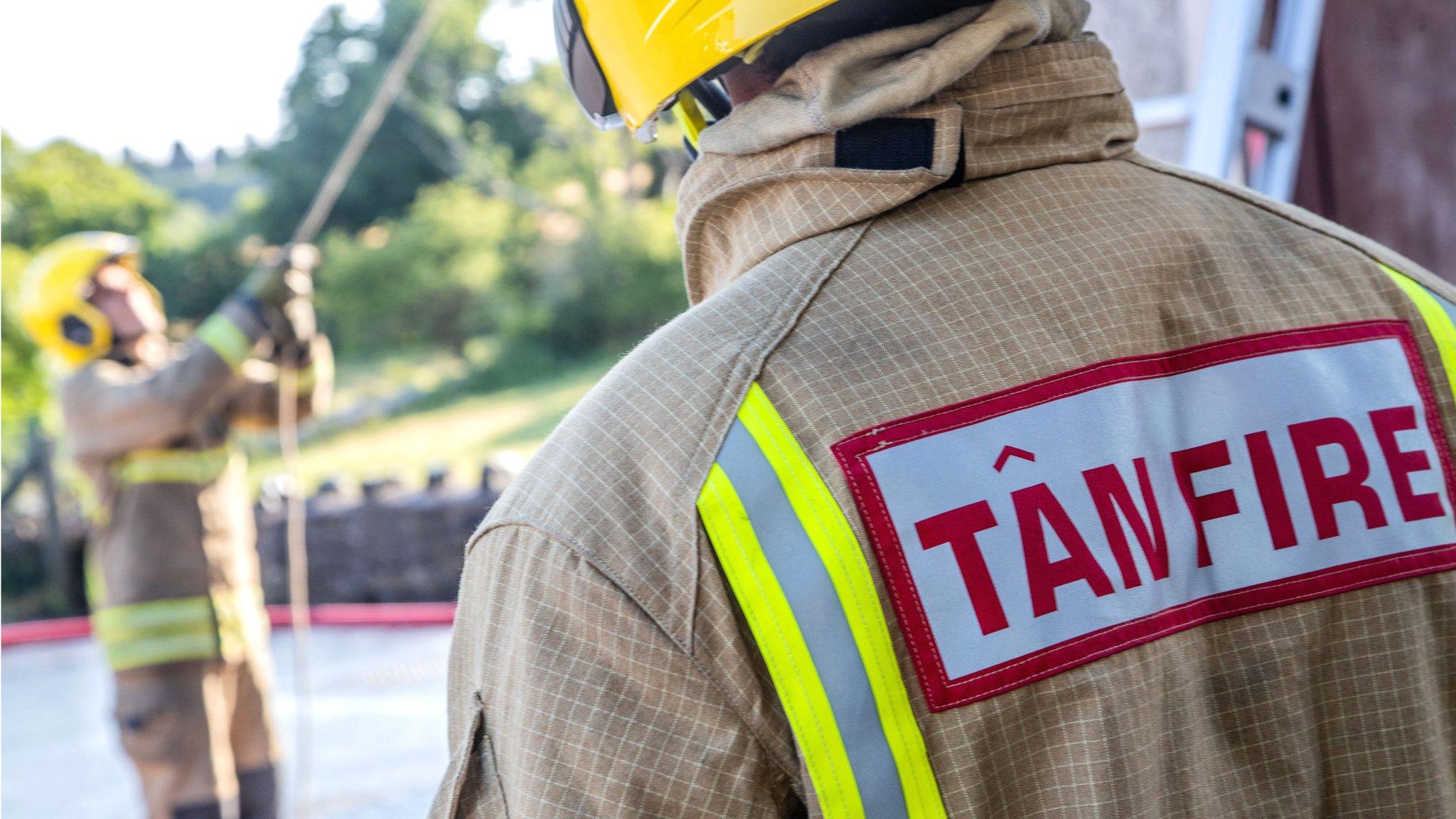
- Published13 May 2018
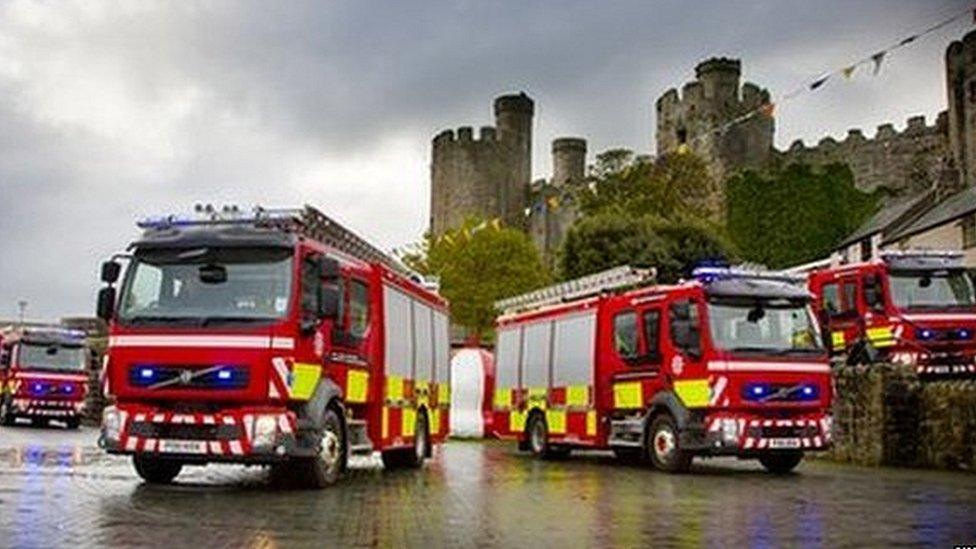
- Published27 September 2017
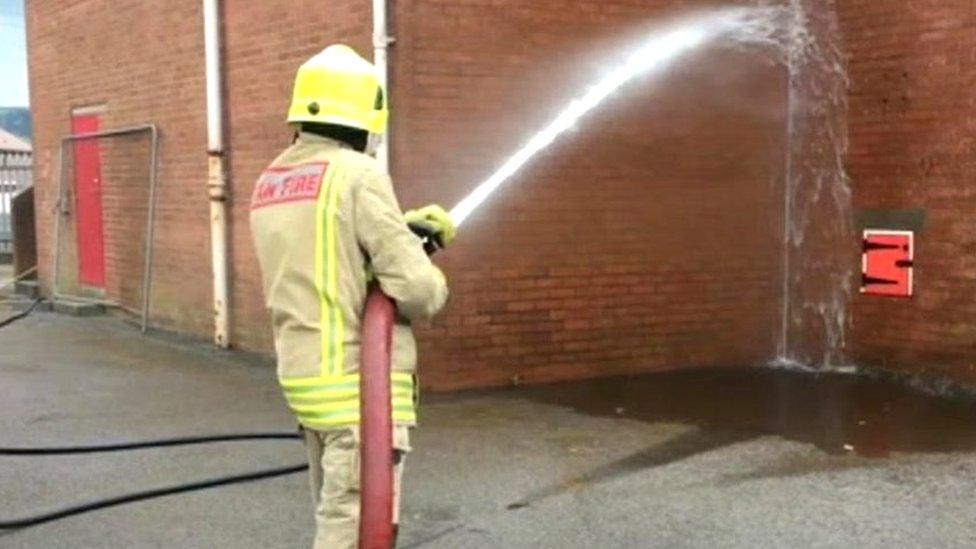
- Published13 February 2017
